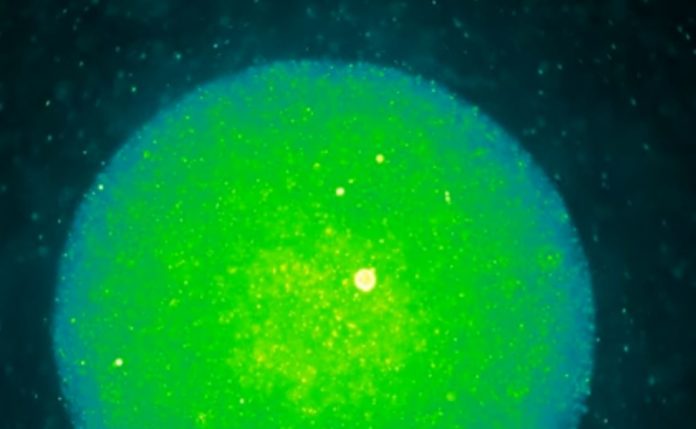This new study shows how the tiniest things in our environment affect the big picture
Oceans absorb carbon dioxide from the atmosphere via microscopic algae that perform photosynthesis before sinking to the depths of the sea when they die. As a result of this sinking, the degradation processes are accelerated, according to a new study.
Oceans are critical in maintaining the global carbon dioxide balance. This is because billions of microscopic algae live there, absorbing carbon dioxide and incorporating it into their biomass through photosynthesis. When these algae die, they trickle down into deeper zones as “marine snow,” along with the excretions of microscopic creatures that feed on them. Approximately 1 percent of their carbon dioxide is then buried for thousands of years beneath the seafloor.
Experts refer to this constant rain of marine snowflakes as a biological pump because it transports carbon into the ocean’s depths. It is fueled by two antagonistic processes: the sinking of organic flakes and the degradation of those flakes by bacteria. Carbon flux to the depths is increased by sinking flakes, whereas bacteria reduce this flux by removing carbon from the particles. Current ocean models assume that sinking speed and degradation rate are unrelated.
“But we’ve now shown that the degradation processes are enhanced by sinking,” says Uria Alcolombri from the Institute of Environmental Engineering at ETH Zurich.
Alcolombri is the first author of a study by Roman Stocker’s research group just published in Nature Geosciencecall_made.
For their study, instead of tracking sinking particles in the sea, the researchers used a clever technique in which they placed individual millimetre-sized alginate particles in a microfluidic chamber and then pumped artificial seawater through it.
“In our experiments, the marine snow didn’t move through the sea; rather the sea washed around the marine snow. But the relative speed is the same,” says Alcolombri.
The researchers used genetically modified, green-glow bacteria to colonise the alginate particles. These accelerated the breakdown of the particles when water flowed through the chamber; the process takes approximately ten times as long in still water. This is because flowing water removes degradation products, allowing the bacteria’s enzymes to focus exclusively on the particles, rather than decomposing molecules that have already split off.
Alcolombri and his colleague François Peaudecerf have developed a new model of the biological carbon pump based on these observations that incorporates the effect of sinking on the degradation of marine snowflakes.
Two conclusions can be drawn from the model’s calculations: First, the increased particle degradation caused by sinking reduces the theoretical transport efficiency of the carbon pump by a factor of two.
Second, that a large proportion of dead algae decomposes in the ocean’s uppermost layers – a finding consistent with measurements of real carbon flux in the sea.
The team’s research was not directed at enhancing the biological carbon pump’s performance:
“We’re interested in gleaning a fundamental understanding of natural processes; we wanted to know how the biological pump works,” says Alcolombri.
“For this is essential if we’re to predict more accurately how our oceans will respond to climate change”.
It was discovered that microscopic transport dynamics determine the degradation rate of marine snow – and, indirectly, the global carbon dioxide content in the atmosphere.
This demonstrates once again how even the smallest details in the environment have an impact on the big picture.
